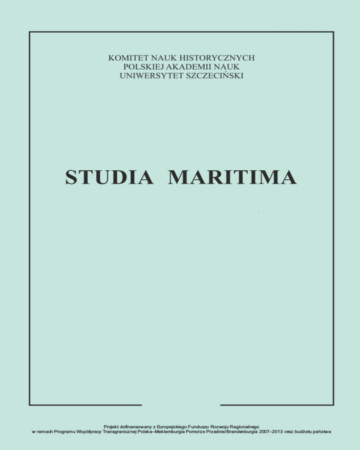






| Autorzy: |
Piotr
Madajczyk
Instytut Studiów Politycznych, Uniwersytet Warszawski |
| Słowa kluczowe: | zdrowie publiczne higiena publiczna rasizm eugenika państwo narodowe czystki etniczne biopolityka inżynieria społeczna |
| Data publikacji całości: | 2016 |
| Liczba stron: | 13 (203-215) |
| 1. | Barrett D., Kurzman C., Globalizing social movement theory: The case of eugenics, „Theory and Society” 2004, nr 33. |
| 2. | Ziemann B., Wetzel R.F., Schumann D., Brückweh K., Introduction: The scientization of the social on comparative perspective, w: Engeenering society. The role of the |
| 3. | human and social sciences in modern societies, 1880–1980), red. K. Brückweh, D. Schumann, R.F. Wetzell., B. Ziemann, Palgrave Macmillan, Basingstoke 2012. |
| 4. | Bernasconi R., The Policing of Race Mixing: The Place of Biopower within the History of Racisms, „Bioethical Inquiry” 2010, nr 7. |
| 5. | Berner M., From „Prisoner of War Studies” to proof of paternity: Racial anthropologists and the measuring of “other” in Austria, w: M. Turda, P.J. Weindling, „Blood and |
| 6. | Homeland”. Eugenics and racial nationalism in Central and Southeast Europe, 1940–1940, Central European University Press, Budapest 2007. |
| 7. | Bjørlund M., The 1914 cleansing of Aegean Greeks as a case of violent Turkification, „Journal of Genocide Research” 2008, nr 10 (1). |
| 8. | Dugac Ž., “Like yeast in fermentation” Public health in interwar Yugoslavia, w: „Blood and Homeland”. Eugenics and racial nationalism in Central and Southeast Europe, |
| 9. | 1940–1940, red. M. Turda, P.J. Weindling, Central European University Press, Budapest 2007. |
| 10. | Etzemüller T., Rationalizing the individual – Engineering society: The case of Sweden, w: Engeenering society. The role of the human and social sciences in modern societies, 1880-1980), red. K. Brückweh, D. Schumann, R.F. Wetzell, B. Ziemann, Palgrave Macmillan, Basingstoke 2012. |
| 11. | Friedlander H., The Origins of Nazi Genocide: From Euthanasia to the Final Solution, University of North Carolina Press, Chapel Hill 1995. |
| 12. | Gawin M., Progressivism and eugenic thinking in Poland, 1905–1939, w: „Blood and Homeland”. Eugenics and racial nationalism in Central and Southeast Europe, |
| 13. | Hale F., Sweden’s welfare state at a turning point, „Current History” marzec 2012, nr 111 (743). |
| 14. | Harms I., Biologismus. Zur Theorie und Praxis einer wirkmächtiger Ideologie, Verlag der Carl von Ossietzky, Oldenburg 2011. |
| 15. | Kevles D.J., Eugenics, the genome, and human rights, „Medicine Studies” 1985, nr 1. |
| 16. | Lucassen L., A brave new world: The left, social engineering, and eugenics in twentiethcentury Europe, „International Review of Social History” 2010, nr 55. |
| 17. | Lutz R., Embedding the human and social sciences in western societies, 1880–1980: Reflections on trends and methods of current research, w: Engeenering society. |
| 18. | The role of the human and social sciences in modern societies, 1880-1980), red. K. Brückweh, D. Schumann, R.F. Wetzell, B. Ziemann, Palgrave Macmillan, Basingstoke 2012. |
| 19. | Promitzer C., Trubeta S., Turda M., Introduction framing issues of health, hygiene and eugenics in Southeastern Europe, w: Ch. Promitzer, S. Trubeta, M. Turda, Health, |
| 20. | Hygiene, and Eugenics in Southeastern Europe to 1945, CEU, Budapest 2011. |
| 21. | Ryan P.J., Unnatural Selection: Intelligence Testing, Eugenics, and American Political Culture, „Journal of Social History” 1997, t. 30, nr 3. |
| 22. | Üngör Ü., Seeing like a nation-state: Young Turk social engineering in Eastern Turkey, 1913–1950, „Journal of Genocide Research” 2008, nr 10 (1). |
| 23. | Weindling P.J., Racial expertise and German eugenic strategies for Southeastern Europe, w: C. Promitzer, S. Trubeta, M. Turda, Health, Hygiene, and Eugenics in |
| 24. | Southeastern Europe to 1945, CEU, Budapest 2011. |